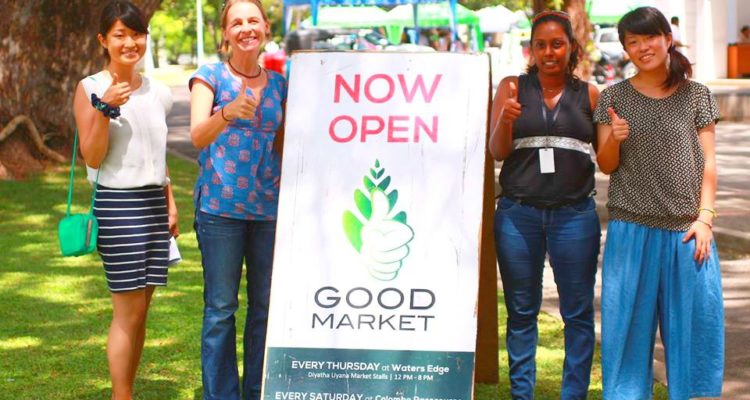Sri Lanka has adopted a 360° approach towards popularising organic cultivation and adoption.
By Malani Baddegamage (Image courtesy of The Good Market)
Note: To access the contact details of all Indian organic suppliers and organic shops in India, buy Organic Directory
The current scenario in the Sri Lankan organics industry is promising. With increased demand for organics both in Sri Lanka and export markets, large producer companies and farmer groups are playing an important role in the Sri Lankan organic movement—supporting and helping marginal farmers adopt organic cultivation. Meanwhile, the establishment and consequent success of consumer driven initiatives such as the ‘Good Market’, which is not only empowering small scale farmers but also revolutionising access to organic products for the typical Sri Lankan organic consumer, indicates the vast potential of the domestic organic market within the country.
Small Organic Farmers’ Association (SOFA)
Growing interest in organics across the globe means large producers require greater organic inputs and produce than ever before, and are relying on farmer groups and community agriculture for their needs. SOFA is one such association, focusing on sustainability and protection of the environment. By adhering to the Fairtrade concept, SOFA utilises the premium to enhance the living standards of small farmers in project areas.
Members of SOFA select soil conservation methods to suit the farmland. They practise live fencing, the Sloping Agricultural Land Technology (SALT) method, and live mulching in order to prepare compost from the residue generated from the land. They also add crop residue (lopping and pollarding) and utilise natural liquid manure and vermiwash to better soil fertility levels.
SOFA has also implemented environment protection programmes to improve the sustainable use and conservation of natural resources, as well as, repair previous damage and reverse negative trends. To achieve these ends, some of the practices they have enforced are:
- Encouraging and spreading awareness of the sustainable use and conservation of existing natural resources
- Conducting planting drives in reservation and catchments areas
- Implementing projects on systematic removal of garbage
- Educating farmers on carbon emission reduction and prevention of genetically modified plant cultivation
- Holding environment programmes at the school level as consequential investment for future generations
- Identifying risk areas and setting up medicinal herb gardens
Forest Garden Approach
Besides sourcing from farmer co-ops, Sri Lankan companies nowadays are practising organic cultivation coupled with Analogue Forest and Forest Garden principles and sourcing products through community farming from various parts of the island.
Forest Gardens are forests akin to the natural forest of an area in structure and ecological function but contain trees that yield commercially viable products. These gardens yield spices, cashew nuts, coconut, red rice, sesame, medicinal herbs, fruit and coffee, which support the local communities, as well as, wildlife (including endangered species) and are fostered by farmers, who comply with the standards of organic production. These models also provide microhabitat, clean water, produce and environmental stability and are effective tools in arresting biodiversity loss.
The Good Market
The Good Market serves as a marketing platform wherein organic farmers and promoters of sustainable, environment friendly fairtrade and natural products can sell to consumers directly.
Founded by Dr Amanda Kiessel, an American, the Market started as a small weekly market in the capital, selling regional organic products and sustainable goods as a response to the growing demand for organic food, natural cosmetics and sustainably manufactured products in Sri Lanka. A facsimile and a shop soon followed. Today, the two Good Markets, as well as, the retail shop are thriving and the number of vendors and customers are increasing. The market has achieved phenomenal growth since its inception in 2013, with the number of vendors having risen from around 30 to 320 in 2016. The unique marketplace assumes the form of a lively festival, with an array of health food stalls, wherein visitors can sample traditional Sri Lankan food while being entertained by live music and street performers. With the theme ‘Good for the Planet, Good for the Country, and Good for You’, the Market beckons the health and eco conscious, along with the socially responsible.

The author is Director of the Export Agriculture Division of the Sri Lanka Export Development Board



I’m interested in purchasing organic spices products. I’d like to directly work with farmers and support their growth. Kindly provide some communication. Thank you